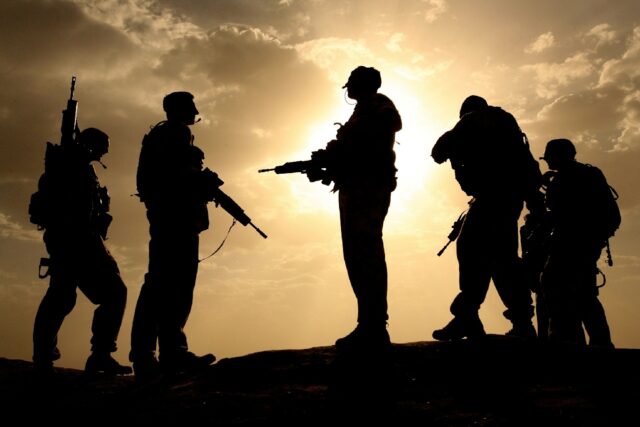A UK government minister is on a collision course with the law over his refusal to reveal the sources of allegations that British special forces committed war crimes in Afghanistan.
Johnny Mercer, Britain’s minister for veterans, has said “multiple officers” told him about alleged murders and a subsequent cover-up during the Afghan conflict.
He has refused to divulge their identities to a public inquiry examining whether a unit executed males of “fighting age” who posed no threat in the war-torn country between 2010 and 2013.
The Independent Inquiry Relating to Afghanistan published a statement on Tuesday saying it had ordered Mercer, 42, to hand over the names next week or face a potential prison sentence.
It revealed that it had issued the MP with a Section 21 notice under Britain’s Inquiries Act 2005 on March 13.
The published order compels Mercer to provide a witness statement containing the names of the whistleblowers by 4:00 pm (1500 GMT) on Friday April 5.
Failure to comply without a reasonable excuse would be “a criminal offence punishable with imprisonment and/or a fine”, the notice says.
Signed by the probe’s chairman, Charles Haddon-Cave, it adds that the High Court in London could enforce the order through contempt of court proceedings, which “may result in imprisonment”.
A ‘drop weapon’
The order insists the names “will be treated in confidence” and would not be disclosed to anyone who is not a member of the inquiry’s legal team without Mercer’s consent.
If he is unable to fulfil the order or believes it is unreasonable, then he has until April 3 to appeal. Mercer is expected to do so.
He repeatedly refused to disclose the names when he gave evidence to the inquiry last month, during a series of testy exchanges with the inquiry’s counsel.
Mercer also refused to reveal the name of a Special Boat Service (SBS) member who said he had been asked to carry a “drop weapon” — a weapon taken on an operation to place next to an unarmed individual.
“The one thing you can hold on to is your integrity and I will be doing that with these individuals,” said Mercer.
Haddon-Cave accused the minister of obstructing the inquiry, saying he had a “misguided understanding of the term integrity and an inappropriate sense of loyalty.”
Mercer is himself a former British Army officer who served three tours of Afghanistan. He has been a Conservative MP in Plymouth, southwest England, since 2015.
‘Campaign of murder’
Mercer isn’t shy of the limelight. He once appeared half-naked in an advert for shower gel and in 2018 took part in a reality TV show where he had to go on the run and avoid capture by an expert team of hunters.
He is not speaking publicly about the stand-off with the inquiry but allies say his stance is driven by a desire to protect the idea that service personnel and veterans can approach lawmakers in confidence.
They add that the whistleblowers have significant mental health issues and are therefore vulnerable.
People familiar with Mercer’s thinking say he is concerned about the prospect of jail time but will only divulge the names if the sources give him permission to.
Prime Minister Rishi Sunak’s office refused to comment specifically on Mercer’s case but said people should “of course” comply with public inquiries.
Afghan families have accused UK special forces of conducting a “campaign of murder” against civilians, while senior officers and personnel at the Ministry of Defence “sought to prevent adequate investigation”.
The BBC reported in 2022 that one SAS squadron had killed at least 54 people, including detainees and children, in suspicious circumstances during one six-month tour of Afghanistan.
The inquiry is scrutinising two investigations conducted by the Royal Military Police, which is responsible for the policing of army personnel.
No charges were brought under Operation Northmoor, which was set up in 2014 to examine allegations of executions by special forces, including those of children.
Three soldiers were referred to the Service Prosecuting Authority, but none was prosecuted.

COMMENTS
Please let us know if you're having issues with commenting.